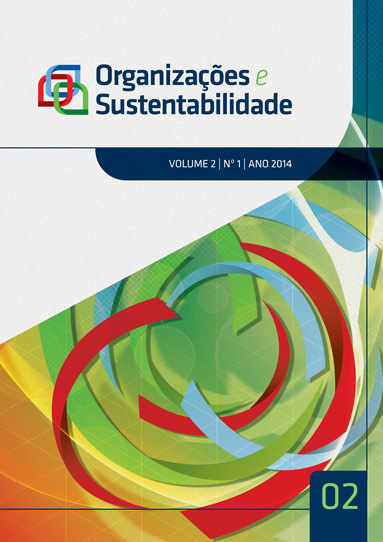In A Critical Theory Of Sustainability
DOI:
https://doi.org/10.5433/2318-9223.2014v2n1p2Keywords:
Critical Theory, Sustainability, Critical Theory of Sustainability.Abstract
This paper proposes a critical theory of sustainability. To do so, we will retrieve the more usual and universal conceptions of the subject, hereby called the Traditional Theory of Sustainability, in order to find their theoretical and conceptual developments, including their critical bias. We will present such traditional theory and then review it through high lights as to give it a meaning that is able to show how it hides a proposal that meets the needs of the socialmetabolism of capital (Mészáros, 2002). This will be done from the definition of the components of a critical theory of sustainability. The arguments in support of the critical theory on the traditional theory of sustainability is based on the idea that sustainability should be understood not only as a collective process of production of objective and subjective material conditions of social existence, but also as a process that likewise values its producers.
Downloads
Downloads
Published
How to Cite
Issue
Section
License
O(s)/a(s) autor(es)/autora(s) transfere(m) todos os direitos autorais do artigo para a revista Organizações e Sustentabilidade, sendo vedada qualquer reprodução, total ou parcial, em qualquer meio de divulgação, impresso ou eletrônico, sem que a prévia e necessária autorização seja solicitada e, se obtida, fará constar o competente registro e agradecimento à revista.












